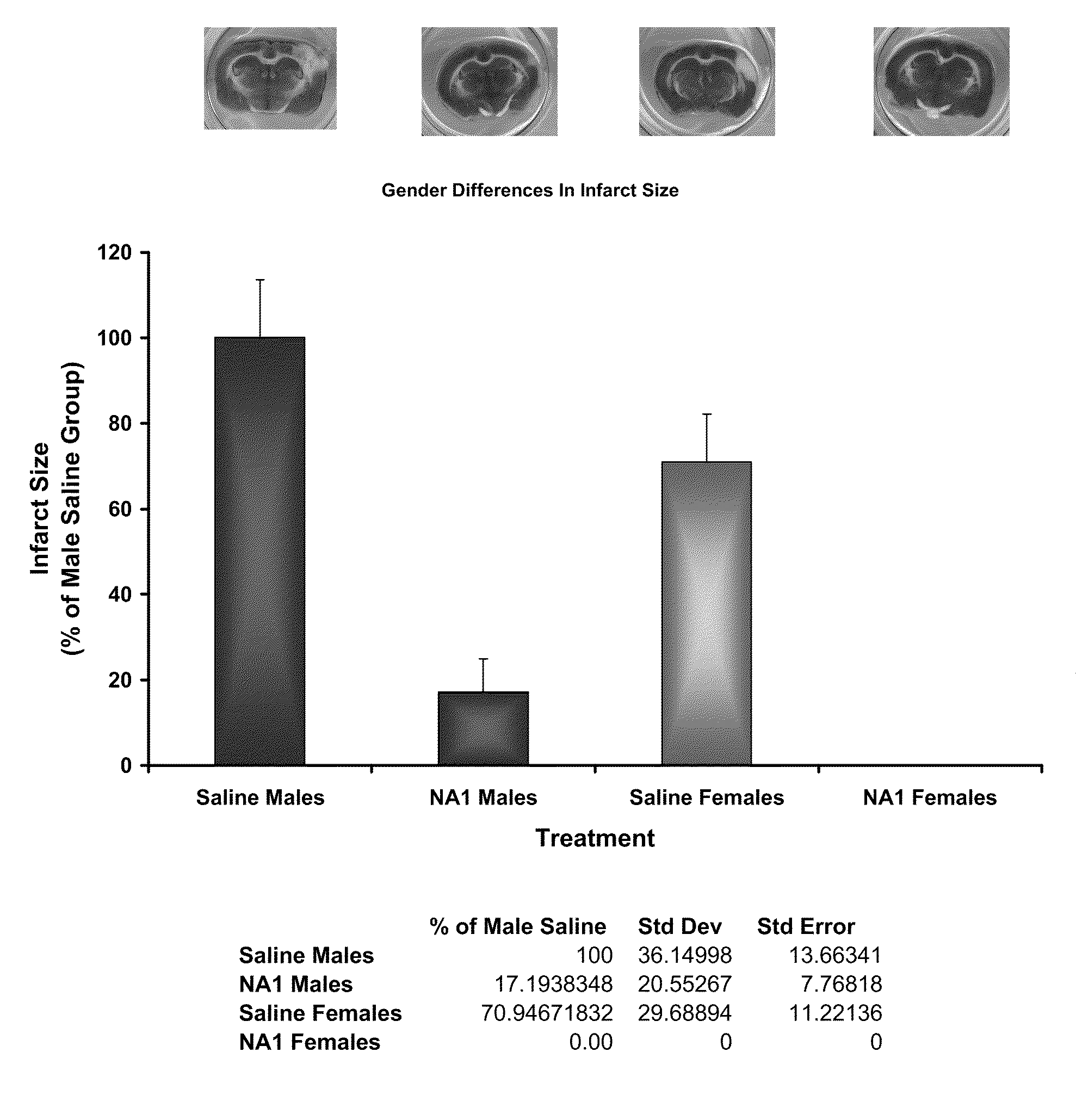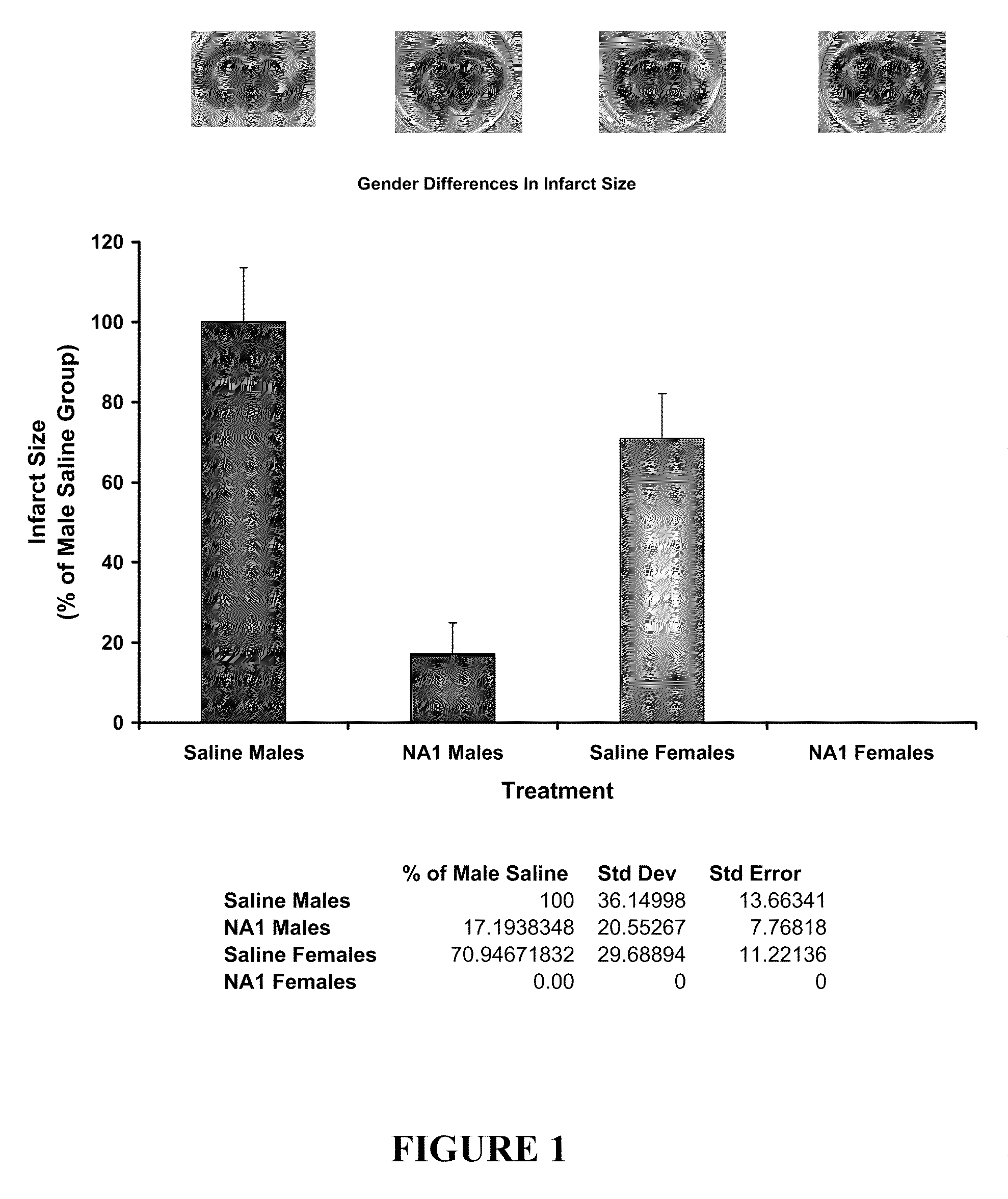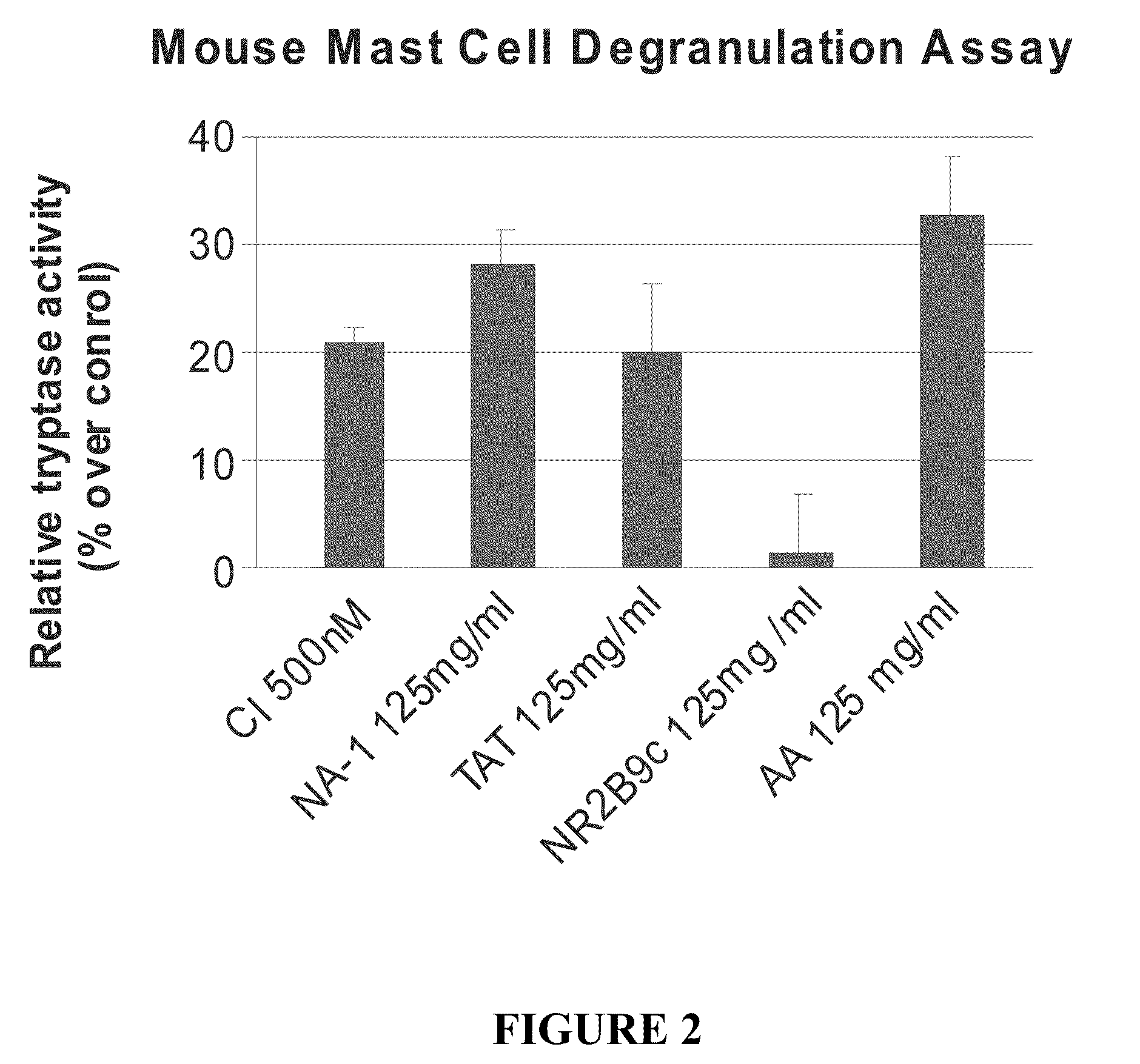Co-Administration of an Agent Linked to an Internalization Peptide with an Anti-Inflammatory
a technology of internalization peptide and anti-inflammatory agent, which is applied in the direction of peptide/protein ingredients, drug compositions, metabolic disorders, etc., can solve the problems of many larger molecules and some small ones alone having limited capacity to pass through cellular membranes, and achieve the effect of reducing the capacity of internalization peptides, inhibiting inflammatory responses, and treating or affecting prophylaxis of diseases
- Summary
- Abstract
- Description
- Claims
- Application Information
AI Technical Summary
Benefits of technology
Problems solved by technology
Method used
Image
Examples
example 1
Impact of Gender on the Neuroprotective Efficacy of Tat-NR2B9c
[0110]The neuroprotective efficacy of Tat-NR2B9c was assessed in both male and female rats using the in vivo pial 3 vessel occlusion (P3VO) model of stroke (Forder J P, Munzenmaier D H, Greene A S. Angiogenic protection from focal ischemia with angiotensin II type 1 receptor blockade in the rat. Am J Physiol Heart Circ Physiol 2005 April; 288(4):H1989-H1996).
Methods
Animals
[0111]Adult Sprague Dawley rats (10-12 weeks old) (males ˜300 g, females ˜250 g) were fasted for 12-18 hours before being subjected to permanent pial vessel occlusion of 3 terminal branches of the Middle Cerebral Artery over the Whisker Barrel Cortex (P3VO). Tat-NR2B9c was tested in male rats plus a saline control group (n=8 in each group). Tat-NR2b9c and a saline control were tested in female rats (n=8 in each group). The researcher was blinded to the treatment group during the time of surgery through to the analysis of infarct size.
General Procedure
[01...
example 2
Peptides Containing Tat Sequence Induce Mast Cell Degranulation with Histamine Release In Vitro
Methods
Cell Culture
[0115]C57 mice were sterilized with 70% ethanol, and the femur was dissected away from the skin and connective tissue. Bone marrow cells were collected and resuspended in OPTI-MEM (Gibco) containing 5% heat-inactivated FBS, 6% WEHI-conditioned medium (as a source of IL-3), and 55 μM □-2mercaptoethanol. Cells were cultured at approximately 1×106 cells / mL. After 2 days, cells were collected and centrifuged where the pellet was plated on a fresh plate with fresh medium. New WEHI-condition medium was added each week. The cells were cultured for about 4 weeks after which they were >95% mast cells and were used for the mast cell degranulation assay.
[0116]Tryptase activity was determined using the Mast Cell Degranulation Assay Kit (CHEMICON, Temecula, Calif.). After isolation, the cells were washed and resuspended at approximately 1×106 cells / mL in ...
example 3
Conjugates of Peptides Containing Tat Sequence Fail to Induce Mast Cell Degranulation In Vitro
[0129]The effect of certain modifications such as conjugation to Tat-containing peptides on mast cell degranulation was studied using methods described in Example 2. The modified peptides included Tat-NR12B9c, the D-isomer of Tat-NR2B9c (termed D-Tat-NR2B9c), a biotin conjugated Tat-NR2B9c, a biotin-conjugated AMP-KLSSIESDV (SEQ ID NO:5). As shown in FIG. 5, biotin-conjugated Tat or AMP peptides to failed to induce mast cell degranulation.
PUM
 Login to View More
Login to View More Abstract
Description
Claims
Application Information
 Login to View More
Login to View More - R&D
- Intellectual Property
- Life Sciences
- Materials
- Tech Scout
- Unparalleled Data Quality
- Higher Quality Content
- 60% Fewer Hallucinations
Browse by: Latest US Patents, China's latest patents, Technical Efficacy Thesaurus, Application Domain, Technology Topic, Popular Technical Reports.
© 2025 PatSnap. All rights reserved.Legal|Privacy policy|Modern Slavery Act Transparency Statement|Sitemap|About US| Contact US: help@patsnap.com



